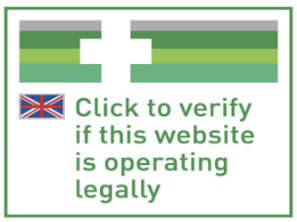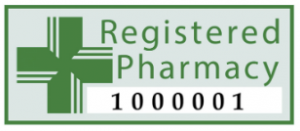The risks of buying medicines online
Parents and carers who have difficulty getting medicines for their children may be tempted to buy medicines online. However, there may be risks associated with buying from unregulated websites and in this article we list ways to avoid placing your child in danger from counterfeit medicnes.
The potential risks of buying medicines online – the #FakeMeds campaign
What are the risks of buying medicines online?
Some websites sell fake (counterfeit) medicines or medicines that have not been approved. These medicines may contain too much or too little (or indeed, none) of the actual medicine, they may be out of date, or may contain unregulated substances. As such, there are potential risks to health from taking these medicines. Consumers who use these websites may also be at risk of credit card fraud and identity theft.
Websites selling fake medicines often list products that claim to help anxiety, depression, weight loss, diabetes, cancer and inflammatory conditions. Steroids, are also commonly promoted on these websites, but are unlikely to be helpful. During the COVID-19 pandemic some websites tried to sell medicines that they claimed helped to prevent or treat COVID-19, even though these medicines haven’t been tested for this use in clinical trials– and are unlikely to help.
How big is the problem?
Fake medicines and illicit websites are a massive problem. It is thought that 10% of medicines bought across the world are fake. In a campaign in May 2021, more than 3 million medicines and medical devices were seized in the UK (worth more than £9 million), and 113,000 illegal websites were shut down. This was part of the international “Operation Pangea”, which is an international effort coordinated by Interpol to stop the online sale of counterfeit medicines and other healthcare products. You can read more about Operation Pangea here on the Interpol website.
Keeping consumers safe – the #FakeMeds campaign
The Medicines and Healthcare products Regulatory Agency (MHRA), which is responsible for the safety of medicines in the UK, launched the #FakeMeds campaign to help consumers identify and report fake pharmacy websites. You can read more about the MHRA’s work and the campaign here on the UK Government website.
The #FakeMedicine campaign gives some important ways to identify websites that may be selling fake medicines.
- The websites are often poorly designed, have pop-up ads and may contain spelling and grammatical errors.
- Exaggerated claims such as “100% safe”, “no side effects”, “quick results” or “quick delivery” all suggest that a website may not be legitimate. Remember that if something seems to good to be true, it is unlikely to be worth buying.
- Payment by crypto currency is a good indicator that the website is not legitimate.
- Cheap medicines are likely to be fake.
- The pharmacy should give a physical address on the website.
- If packaging is damaged, of poor quality, or there is no “use by” date, the products are likely to be fake and should not be used. Take them to a pharmacy to be disposed of.
- Look for symbols indicating that the website belongs to a registered pharmacy, such as those shown here.


What can I do?
- Whenever possible, get medicines from a physical pharmacy or from your doctor.
- Note that in the UK, many medicines can only be obtained with a prescription and it is illegal to advertise these products to consumers.
- If you need to get medicines from an online pharmacy, make sure that it is a legitimate pharmacy. Use the guidance on the MHRA website.
- You can check whether a pharmacy is registered in the UK here on the General Pharmaceutical Council’s website.
- Be wary of products that seem too good to be true.
- If you are in any doubt about whether an online pharmacy is legitimate, do not buy medicines from it.
